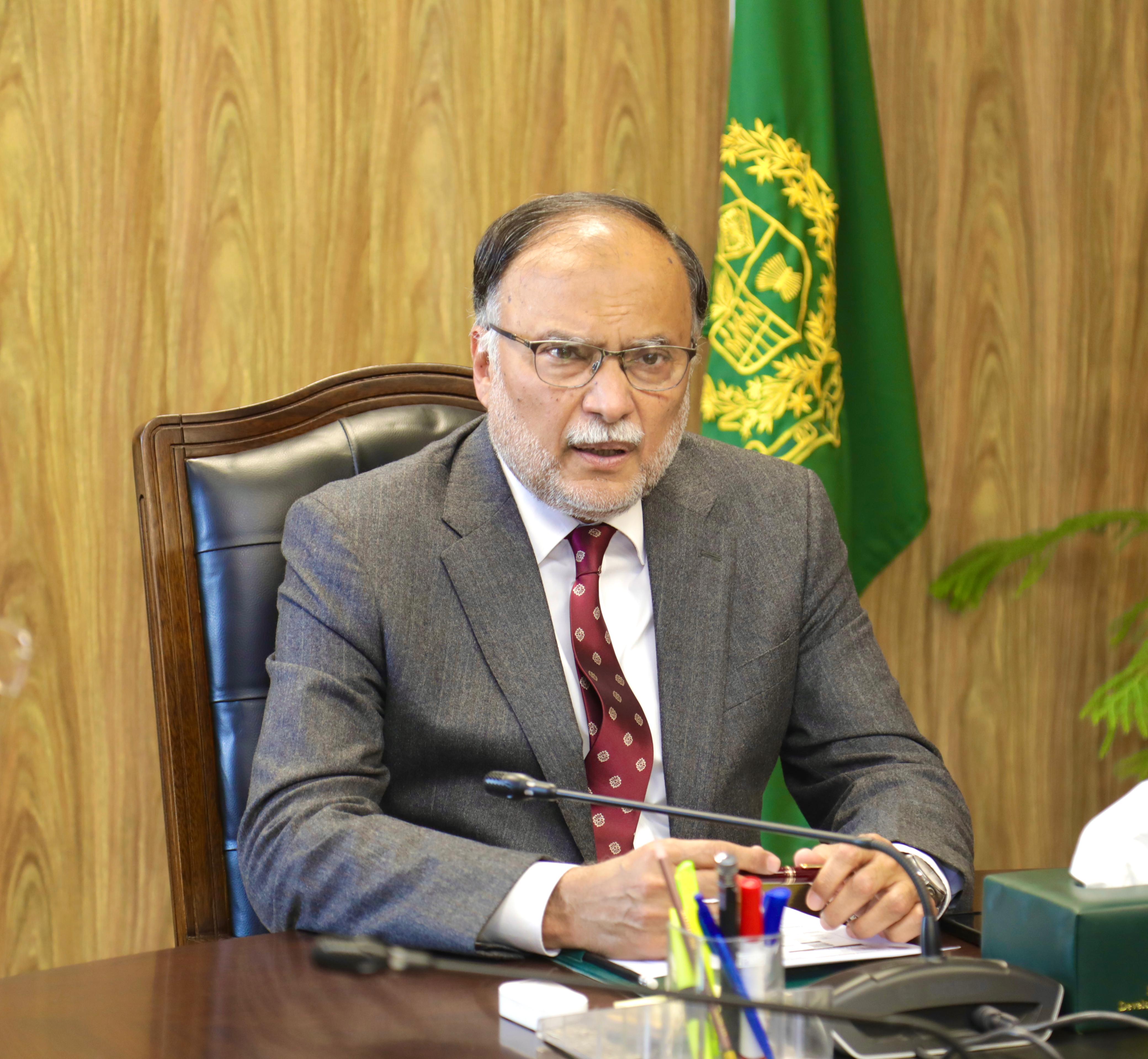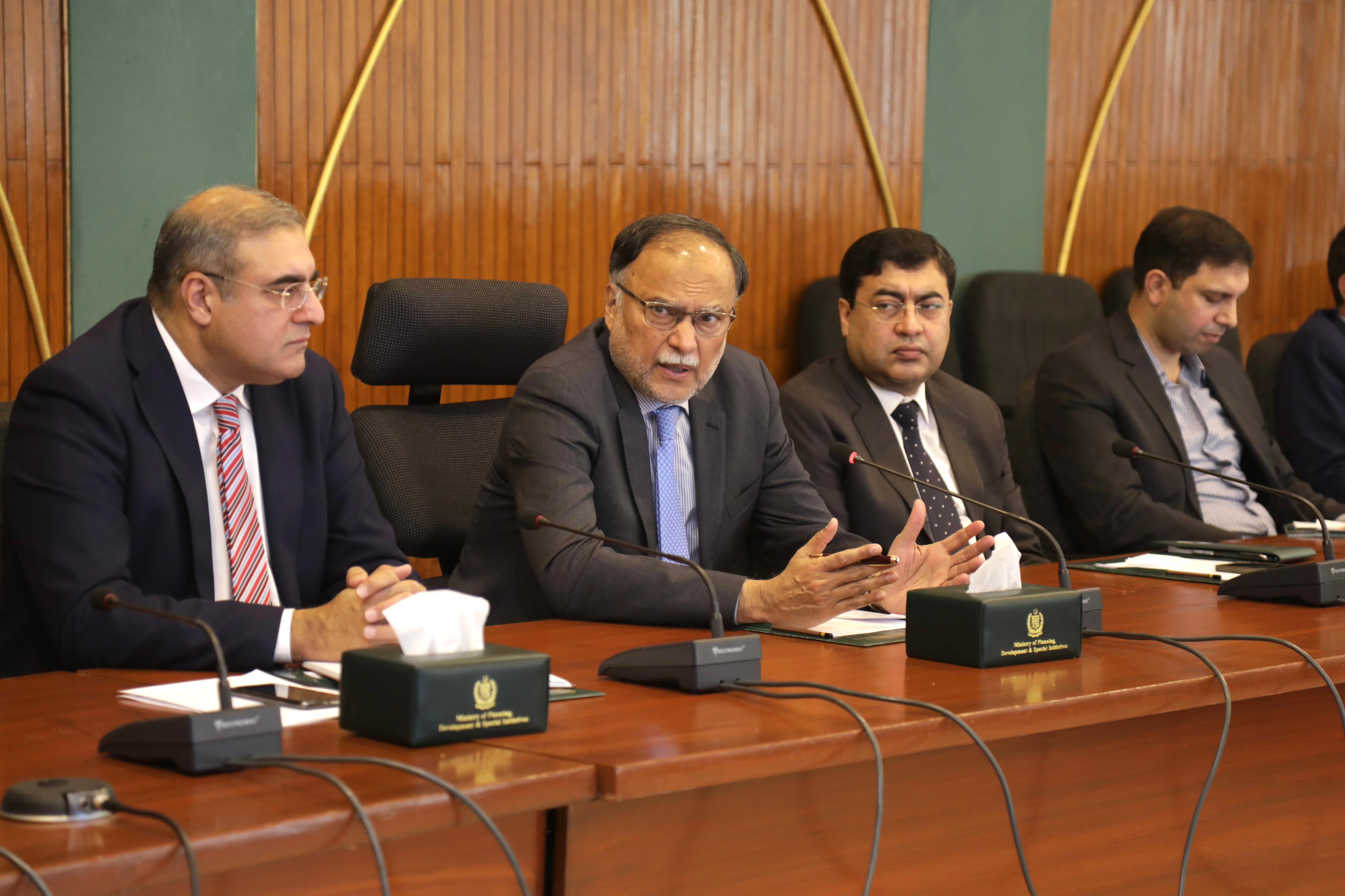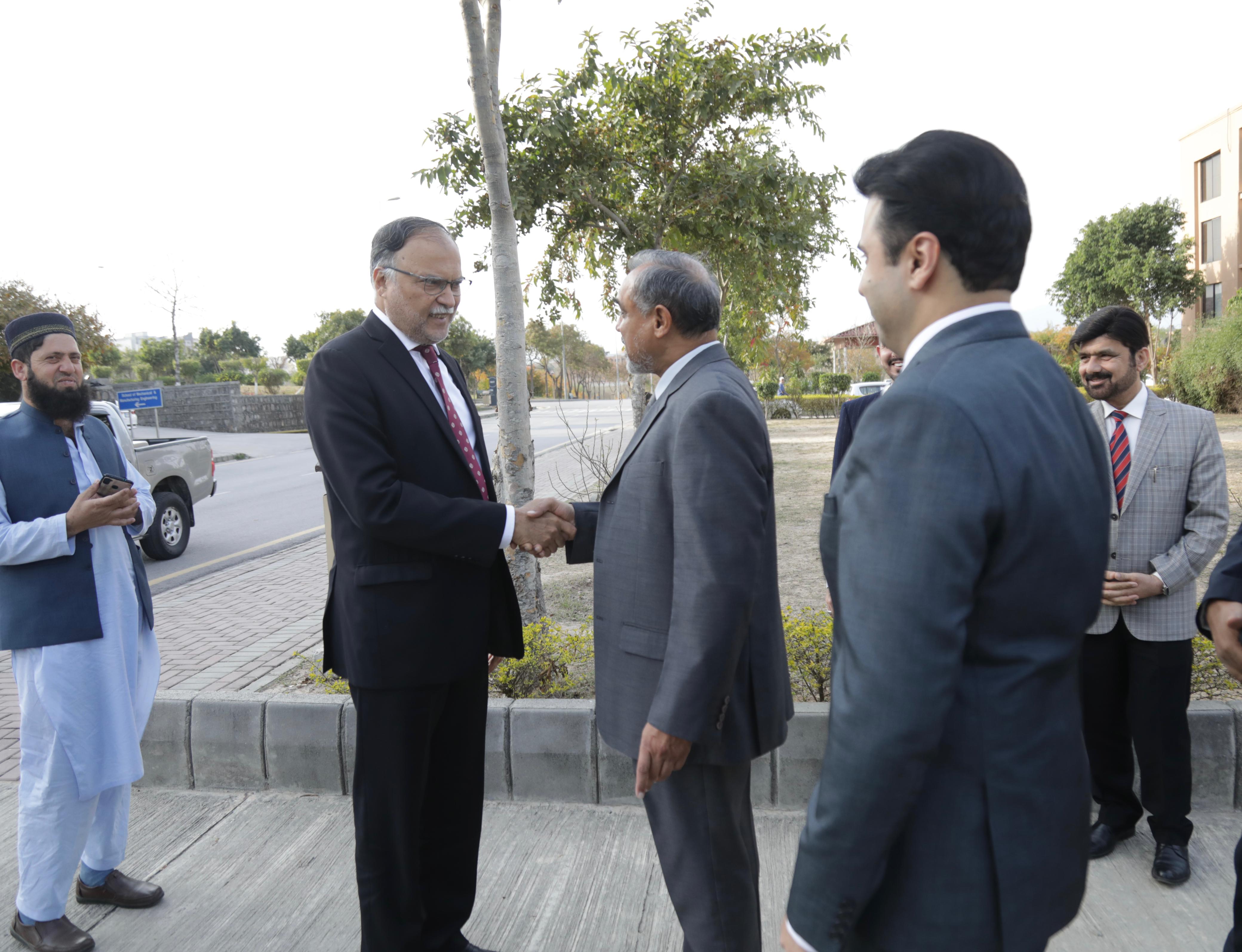
Development & Special Initiatives
Press Release/Tickers

The CDWP meeting presided over by Deputy Chairman ...
Published : 15 March 2024
The CDWP meeting presided over by Deputy Chairman Planning Commission ...
وزارت منصوبہ بندی کا 5 ایز ف�...
Published : 14 March 2024
وفاقی وزیر برائے منصوبہ بندی ترقی و خص�...
Ahsan Iqbal reviews progress of National Centers o...
Published : 13 March 2024
The newly-appointed Federal Minister for Planning Development & Specia...
SYMPOSIUM ON INTERNATIONAL LITERACY DAY ADDRESS BY MR. SARTAJ AZIZ, DEPUTY CHAIRMAN, PLANNING COMMISSION
Dated : 12 September 2017
Razina Alam Khan, Excellencies, Distinguished participants, Ladies & Gentlemen,
Assalam-o-Alaikum!
May I compliment the National Commission for Human Development for organizing the symposium in collaboration with UNESCO and JICA,
2. The theme for this years’ International “Literacy Day is “Literacy in the Digital World”. In this context let me quote the relevant extract from Vision 2025 document of the Planning Commission:
“A new knowledge revolution era in technology marks a paradigm shift in development and wealth creation models, by placing knowledge as the most strategic asset in the development balance sheet. Rapid changes in technology and the introduction of disruptive new technologies are enabling and catalyzing massive increases in productivity and giving birth to entire new sectors of economic activity. Six technologies are likely to drive the future of development namely micro-economics, computers, robotics, and biotechnology. Specifically, the growth in ICT has shifted the world to a virtual space, particularly for the delivery of services, and has given birth to a new global operating model for businesses”.
3. To illustrate the importance of information technology let me also remind this august audience of certain interesting facts:
- Recently MD of Daimlia Benz said, their competitors are no longer other car manufacturers but Google, Apple, Amazon and Tesla.
- Uber is just a software tool; they don’t own any cars but are now the biggest taxi company in the world.
- Airbnb is now the biggest hotel company in the world, although they don’t own any properties.
- Artificial Intelligence computers have become exponentially better in understanding the world. This year, a computer beat the best Go player in the world, 10 years earlier than expected.
- In the US, young lawyers already don’t get jobs. Because of IBM Watson, you can get legal advice within seconds, with 90% accuracy compared with 70% accuracy when done by humans.
- Watson already helps digital nurses diagnosing cancer 4 times more accurately than human nurses. Face book now has a pattern recognition software that can recognize faces better than humans.
- Software will disrupt most traditional industries in the next 5-10 years.
4. In this background we have to understand the importance of modern scientific education and creative thinking. Science education and creativity contributes to innovations and new technologies that improve the standard of living and quality of lives. Advances in information and communications technology have already had dramatic effects on people’s lives and work. Science should not be reduced to imparting technical knowledge to students without any regard to developing their critical thinking skills and cultivating higher scientific ideals. Teachers need to ingrain in their students the idea that scientific methods are meant to be inherently adaptive and self-critical, and their sole objective is the pursuit of better knowledge.
5. In the fields of higher education and I.T. education, Pakistan started late but has made rapid progress in the past 15 years. In the 1990s, Pakistan had only 54 universities but after the establishment of HEC in 2002, the number of public and private universities has increased to 184. Each of these universities has an expanding I.T. faculty. To carry this program to new heights we need much greater attention to science education at school and college level, to provide qualified and talented students to I.T. Schools, and other faculties and prepare our children to compete at the international level.
6. I firmly believe that education is one of the most important investments for an individual, a family and the nation as a whole. I.T. Education and science education are of course a part of overall educational landscape of the country. Although there has been a substantial increase in expenditure on education; but it is well below our national targets. Total expenditure on education in 2015-16 was 663 billion which is about 2% of GDP compared to the target of 4%. After devolution, provinces are responsible for providing education upto intermediate level. In Pakistan overall literacy rate and net enrollment rates are still very low particularly in rural areas and also among females. Provincial Governments must allocate much larger amounts for this very important agenda. Our planned target for Literacy rate is 90% by 2025 and universal literacy by 2030, to meet the SDG goal. But these goals can be achieved only if we use modern technology like cell phones and laptops. Our literacy percentage is 58% but 75% of the population have cell phones. A person with a cell phone can be made literate at a low cost, if we send him relevant messages that are useful or interesting for him like agri message for farmers and simple health tips. Similarly our school children will respond much more actively to a laptop or tablet rather than routine learning in a school for informal education. In other words we should aim at imparting need based through innovative means.
7. But large financial resources are only one of the pre-requisites. Qualified teachers is another essential factor. Teaching methods and Teacher’s skills highly affect the learning trajectories of students. The number of teachers in our system is not sufficient for universal basic education. Majority of in-service primary, middle and secondary teachers have obsolete professional qualifications. Similarly, the class room environment, teaching pedagogy, teacher-student ratio, school infrastructure and curriculum all are important components of education system. We need to work and think hard for streamlining and standardizing the education system.
8. Finally, I will say a few words about early childhood education. There’s compelling evidence that early childhood experiences have a profound and lasting impact on brain development, affecting everything from learning, to health, to lifetime earning potential. Smart investments in young children’s physical, cognitive, and emotional development are critical to adult productivity and the economic competitiveness of countries. But today, millions of young children are not receiving what they need to reach their full potential. Their development is stunted by malnutrition, lack of stimulation, and limited early learning – and by exposure to violence and neglect. We should make sure that our children receive best possible treatment during early years of their lives and reach their best potential.
9. I am confident that with firm commitments and clear priorities we will together provide the best education to our children and form an ideal educating system.








